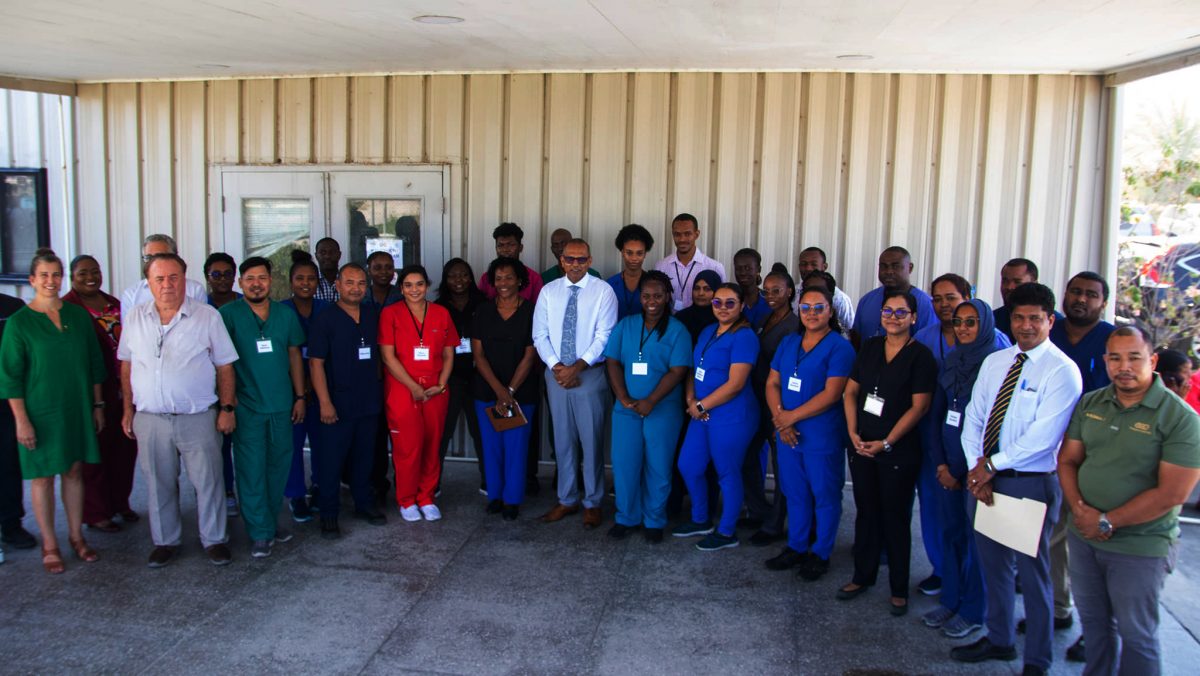Minister of Health, Dr Frank Anthony attended Monday’s launch of the Georgetown Public Hospital Corpora-tion’s Trauma Team Training at the Project Dawn Health Care Centre, Lilliendaal, East Coast of Demerara.
This two-day training is being supported by the Canada Fund for Local Initiative (CFIL), a release yesterday from the ministry said. Twenty-five participants are being trained to work as a team in response to patients’ care at the Accident and Emergency Unit.
Through the $6 million grant, the Trauma Team training will be done for three years.
While expressing gratitude to the Canadian Government for their contribution towards Guyana’s Health Sector, Anthony highlighted that through their collaboration, Guyana will soon benefit from an Ultrasonographer and CT scan technician programme.
“We also have another programme that we will be starting shortly and that is to train Ultra sonographer technicians. This is a new programme that we think is essential if we’re going to have more people having access to ultrasounds and we want to start another programme in CT Scans”, he stated.
He noted that with the infrastructural development of the Health sector, more focus needs to be placed on the management of A&E care.
Meanwhile, CEO and Director of Curriculum Development at the Canadian Network for International Surgery, Dr Ronald Lett, in his remarks disclosed that the programme has been digitised for more productivity.
“We have digitised the programme because time moves on, technology changes and we need to have more productivity. 8% of deaths annually are due to injury on this planet, and 10% of disability-adjusted life years are due to injury, but 90% of this death and disability occurs in low and middle-income countries. So we need to do something about it. There’s primary prevention, and there’s secondary prevention, and trauma team training is both secondary prevention and we want people who are injured to survive. We want them to survive as much as possible without disability so that they can return to their families”, he explained.





